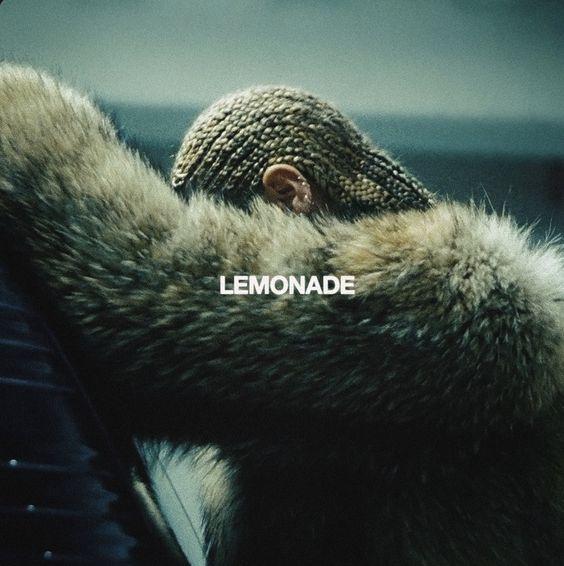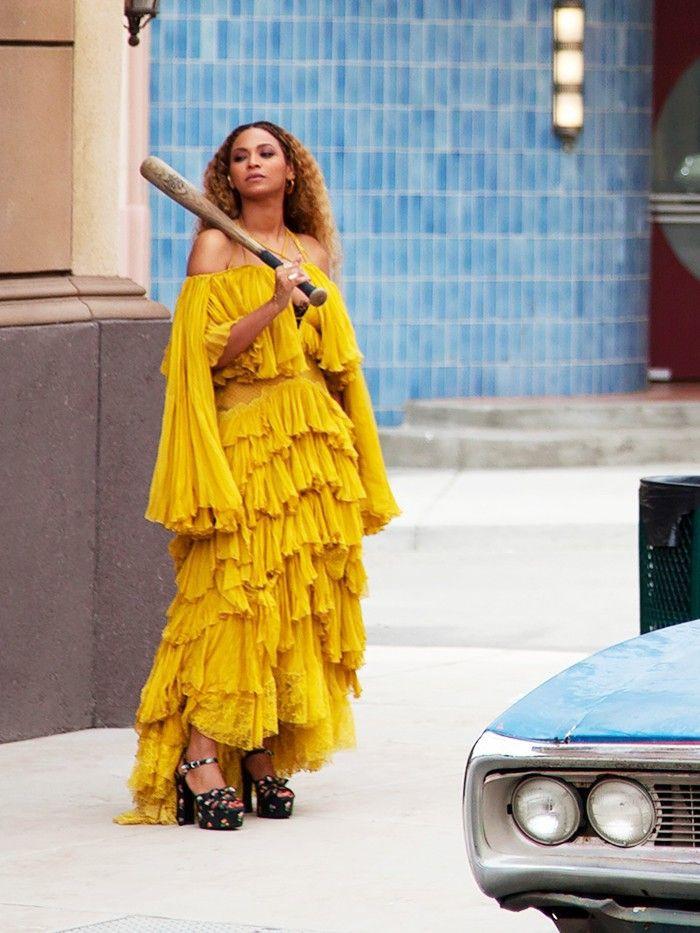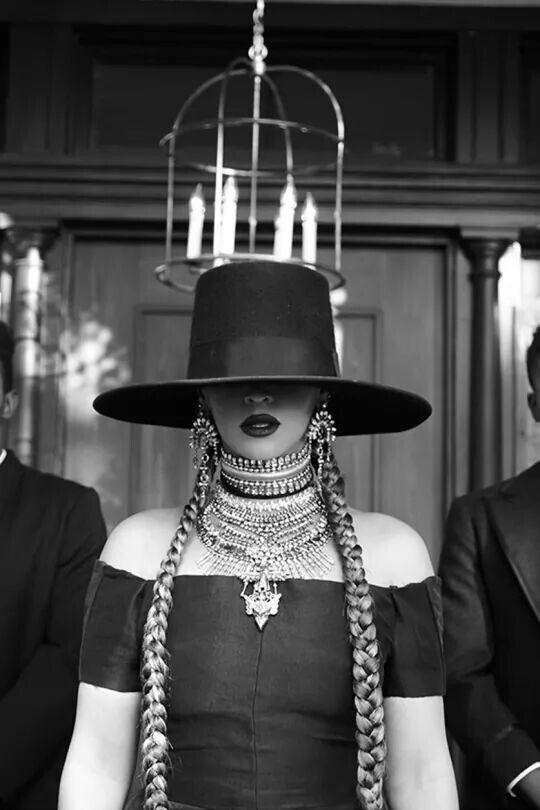
6 minute read
Infidelity, Power & Feminism - Chiara Federico 12LCL
INFIDELITY, POWER & FEMINISIM
Beyoncé's revolutionary 'Lemonade' album - Chiara Federico 12LCL
Advertisement
Beyonce’s sixth studio album 'Lemonade' is a generational masterpiece. Its heavy, complex listening experience pushes music into unexpected places. She takes a multifaceted approach to detailing her reaction to her husband’s infidelity, using a myriad of music genres (from hard rock to country to blues) whilst also exploring her own identity as a black woman in the music industry. Instead of the sensual, glamorous ‘Sasha Fierce’ , we see a vulnerable, yet bold Beyoncé who overtly embraces her blackness, challenges our cultural narrative, and celebrates generations of coloured woman.
Throughout the album, Beyoncé cycles between varying mental states as she learns that her husband has cheated on her: intuition, anger, forgiveness, and reformation. With accompanying visuals for each song, she offers a cinematic experience that makes careful use of cast, setting, and fashion. In Pray you catch me whispering, we see Beyoncé in a black hoodie, meandering through an open field. This afflictive ballade is where Beyoncé seeks clarity on her husband’s disloyalty: “You can taste the dishonesty/It’s all over your breath as you pass it on so cavalier” . She eavesdrops on his conversations and wants to be caught, wants to be acknowledged. “Pray you catch me whispering” has religious overtones which become a central theme for the entire album: To what extent is this betrayal, this sin forgivable? The song ends with an outro, as Beyoncé asks ‘what are you doing my love’ . This establishes the first part of her journey through navigating her marital discord – intuition.
Hold up comes from a place of rage. After realising her husband’s betrayal, Beyoncé emerges reborn onto the streets of New Orleans as she assumes her own power and identity. The iconic ruffled yellow dress she bears pays direct homage to Oshun, Yoruba Goddess of female sensuality and love. She is considered to be the most powerful of all orishas yet is also capable of human emotions such as jealousy and spite. In this way, Beyoncé explores the spiritual power of women and how a man’s betrayal does not disempower her. The sweet reggae ambience (with synthesised interjections) is ironic as she condemns her husband: “what a wicked way to treat the girl who loves you” . She asserts herself as the “baddest women in the game” and suggests that if her husband “never made a name for (himself)” , women would not be “down to ride” with him.
Don’t Hurt Yourself is a heavily synthesised, rock infused frenzy that further amplifies
Beyoncé’s animosity towards her husband. The song is charged with fury, with the use of explicit language and dark visuals. Predominantly set in an underground garage, Beyoncé is wallowing in deeply supressed emotions that are physically, and musically, exhausting to acknowledge and express. Amid her rage, the song abruptly stops as we hear part of Malcom X’s Who taught you to hate yourself speech: “the most disrespected person is the black woman” . Here, Beyoncé is now highlighting the systemic struggles black women endure in America, and how it is time to reclaim their power. They are strong and robust as autonomous individuals. In this way, Beyoncé is no longer blaming herself for her husband’s infidelity, and ends this chapter by throwing her wedding ring at the camera: ‘If you try this … again, you gon’ lose your wife” .
6 Inch is an ode to hardworking women.
“6 inch heels” is a metaphor for power and wealth as Beyoncé now redirects her energy away from her marital affairs, and into her work. She asserts herself as a boss, a powerhouse whose fame and music is a product of her own hard work: “she’s stacking money, money everywhere she goes/ you know, pesos out of Mexico/ …She don’t gotta give it up, she professional. ” However, towards the end of the track, Beyoncé once again reveals her vulnerability – she recognises the commitment she made to her husband as she emerges from a burning house in a white lace dress (reminiscent of her own wedding gown). In a cracked voice, accompanied by a single bass drum, Beyoncé whispers “come back” . This signals a major turning point in the album as she shifts from feelings of anger to that of loss and emptiness.
Though before she can address her husband’s cheating, she uses the country track Daddy’s Lessons to explore her own father’s infidelity towards her mother. Although Beyoncé is grateful for the strength instilled in her by her father, she condemns his betrayal, and ironically twists his own words against him: “cause when troubles come to town and men like me come around/ oh, my daddy said shoot” . Beyoncé grapples with her complex relationships, calls out the men in her family, and essentially calls for better male role Sandcastles is an unlikely ballade in an unlikely scenario. She sings of a metaphorical house built my her and her husband, and how through
turbulent waters and rough storms, the castle “washed away” . She recognises the pain both have suffered in their relationship and how she is willing to forgive: “What is it about you that I can’t erase? / Show me your scars and I won’t walk away” . As oppose to divorcing her husband

Formation is a bold, unapologetic conclusion to her album, challenging sexist and racial prejudices whilst also celebrating her heritage and life’s work. The music is unique with haunting rhythms and
synthesised instrumentals that promote a rebellious vibe. The carefully crafted lyrics draws attention to Beyoncé’s heritage as she recalls her “daddy (is from) Alabama, (and her) Momma Louisiana” , a state notorious for its chattel slavery. However, she then continues to revel in her black identity, singing how she “like(s) (her) baby heir with baby hair and afros” and “her… nose with Jackson Five nostrils” . She is proud of her blackness and her heritage from the South, whilst simultaneously drawing attention to the volatility of the area regarding equality. She then concludes by singing about how she “slays” and has worked from the ground up to forge her own powerful empire.
'Lemonade' is a powerful music project which channels Beyoncé’s most intimate, raw emotions and seamlessly weaves in the hardship of coloured woman and America’s black community. It’s wit, warmth, anger and passion makes for a rich and layered visual and musical experience that has set the course for music production and consumption for years to come. The title of the album is inspired by her husband’s grandmother, Hattie, who endorsed the old epigram that since life gave her lemons, she made lemonade. As Beyoncé makes lemonade from the recipe passed down from generations of black women, she is reminded of their endurance and pragmatism. Conversely, she uses this as a metaphor for her marital relationship. Despite the heartache and devastation caused by her husband’s affairs, Beyoncé is coming out stronger, empowered: “My torturer became my remedy. So we’re gonna heal. We’re gonna start again. ” The Queen Bey is showing us how reformation is possible, and how it can be beautiful.










